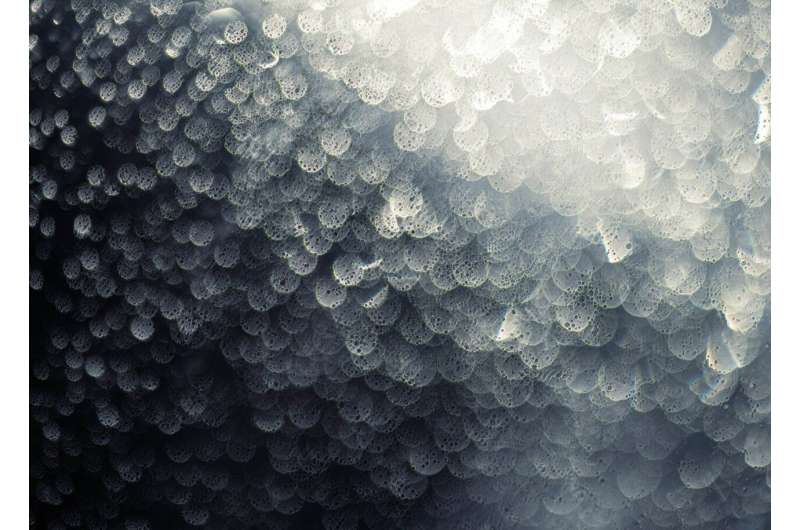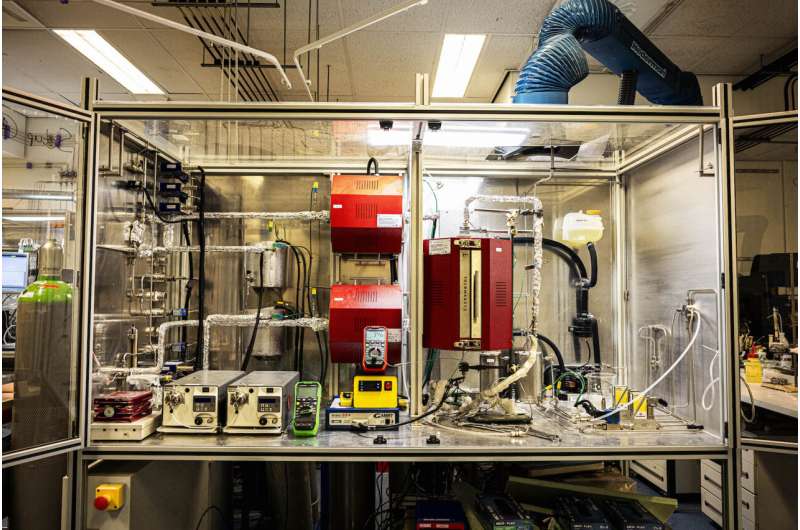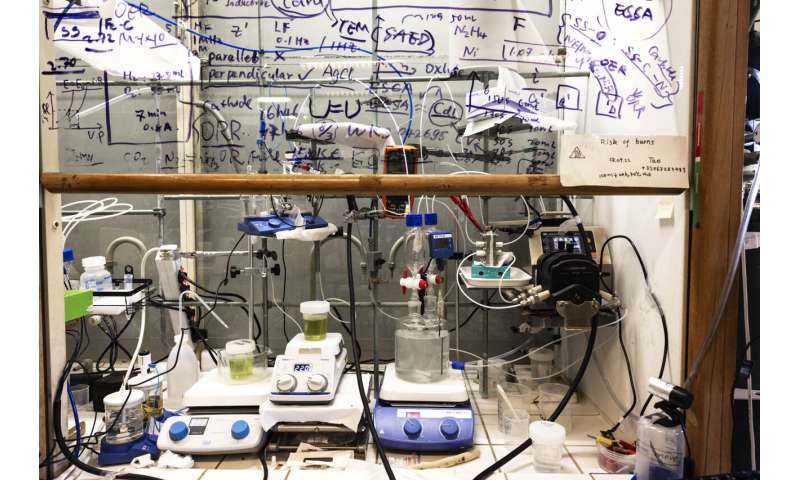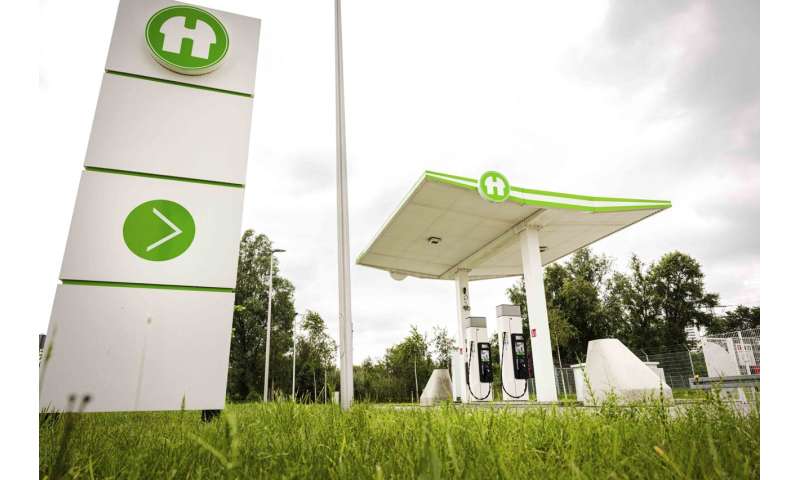This article has been reviewed according to Science X's editorial process and policies. Editors have highlighted the following attributes while ensuring the content's credibility:
fact-checked
trusted source
proofread
We are betting the bank on hydrogen. But are we ready for it?

Green hydrogen holds many promises: it can serve as a "battery" for energy storage, it can be used in the chemical industry, and its only emission will be water vapor. But, unfortunately, green hydrogen is not yet widely used, because the production of gray hydrogen from natural gas is much cheaper.
Moreover, it's not trivial how we could store hydrogen and, as an indirect greenhouse gas, hydrogen is not as clean as it looks. Consequently, researchers of the University of Groningen have a lot of work to do.
Hydrogen is the smallest, simplest element that was at the beginning of all other things. Just after the Big Bang, the universe was shrouded in a mist of hydrogen, and this oldest element is still all around us: in water (H2O), natural gas (with main component methane CH4), and ammonia (NH3).
On its own, hydrogen hardly exists in nature: it is almost always bonded to something else. But it is possible to separate hydrogen from other elements and make it form a molecule of its own (H2). To make this happen, you need to add some energy. When the hydrogen molecule is allowed to bond again, this energy will be released, though with some energy loss.
How humans want to use hydrogen
Now, the idea is that if you split water into hydrogen and oxygen molecules, using energy from renewable sources, the result would be a "green battery." When the sun is shining or the wind is blowing, you can use the excess power supply of solar panels and wind turbines to make hydrogen. Allowing hydrogen to bond with oxygen again results in the production of water and the release of energy.

Because hydrogen likes to bond to other elements, there are many more applications: think of farmers spreading fertilizer (based on ammonia (NH3) on their land, or hairdressers bleaching hair with hydrogen peroxide (H2O2). For these products, we mostly use so-called gray hydrogen, obtained from natural gas, with carbon dioxide (CO2) as a by-product. The reason is simple: Hydrogen from water is currently about five times more expensive than hydrogen made from other elements.
That is why researchers from the University of Groningen are working on the efficient and affordable production of hydrogen made from water as well as applications in, for instance, transportation and the chemical industry.
Storing hydrogen is not easy
Once we have determined how to produce cheap, efficient, green hydrogen, it needs to be stored somewhere, or transported to the place where it is needed. Would it not be convenient if hydrogen gas could simply be transported and stored like natural gas is now? We'd just transport it through our existing pipe lines and store it in empty gas fields underground.
-

Electrolysis for hydrogen production with an alkaline setup. Credit: University of Groningen, Leoni von Ristok -

A hydrogen filling station in Groningen, The Netherlands. Credit: University of Groningen, Leoni von Ristok -

Detail of hydrogen filling station with a handle that reads 'waterstof' (hydrogen in Dutch). Credit: University of Groningen, Leoni von Ristok
Unfortunately, this is easier said than done. Hydrogen is the smallest element there is and the hydrogen molecule (H2) is much smaller than natural gas. If we were to transport hydrogen through our existing pipe lines, it would possibly escape through tiny cracks. What's even worse, it can affect other materials, making metal as brittle as glass, such that it can easily shatter into pieces.
That is why UG researchers will also investigate what happens to the materials that may be used for storing and transporting hydrogen.
Is hydrogen really green?
Then, there is one question that remains: even though we call it green, is hydrogen really green? Hydrogen from water made with renewable energy sounds wonderful, as well as the emission of only clear water vapor when hydrogen is used in applications. Nonetheless, it is important to monitor what will happen in the atmosphere when hydrogen escapes through potential cracks.
Hydrogen is an indirect greenhouse gas, which means that on its own, it does no harm, but through reactions that take place in the atmosphere, it does. Specifically, these reactions lead to more methane, ozone and water vapor high up in the atmosphere, which all result in global warming.
For now, it is not really a problem if small amounts of hydrogen leak into the atmosphere. But what if we fully focus on hydrogen as a green solution for the future?
Then, it will be very important that we monitor and understand what happens to hydrogen in the atmosphere, because of its potential climate impact. That is why UG researchers are taking measurements in the air, and developing models of hydrogen leakage to see how this affects the atmosphere.


















